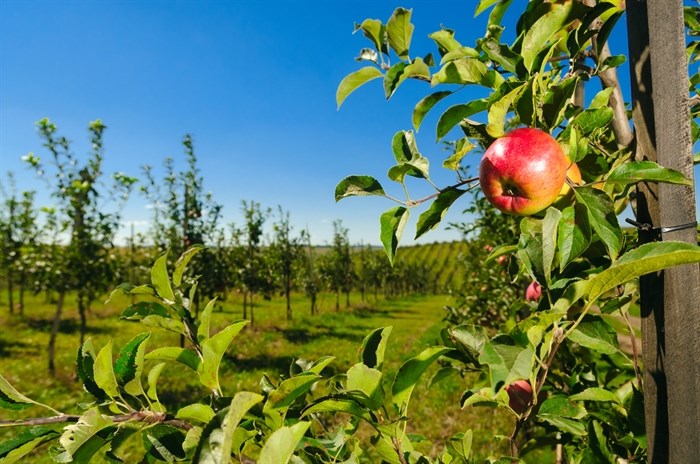
The sterile insect release program aims to protect the tree fruit industry from the destructive codling moth.
Image Credit: Shutterstock
September 07, 2020 - 6:00 AM
The COVID-19 pandemic has helped delay a new drone program being implemented by the Sterile Insect Release program.
Sterile Insect Release program general manager Melissa Tesche says the use of drones to release sterile codling moth populations will probably not begin until 2021.
SIR hoped to launch the drone program last year, but federal regulatory changes to drone operations were introduced halfway through the summer, requiring new training programs.
Tesche says plans to get operational this year were dashed when COVID-19 struck, closing the international border with the United States and preventing U.S. based instructors from coming to Canada for classroom and pilot training two weeks before sessions were set to begin.
“We weren’t able to complete the training this year, so we’ve shelved plans until next spring. In the meantime we’re working on how to facilitate virtual training and do classroom modules in a socially distanced way,” Tesche says.
There are several advantages to using drones to distribute sterile codling moths, which is currently done by operators on an ATV, using a "moth cannon."
Operators need to be in the orchard to do the work, which can take riders half a day. The drones can do it in 20 minutes, so it’s not only more efficient, there are fewer disruptions for growers.
“Aerial release has been the gold standard. In Washington, they use Cessna airplanes, but our valley geography and orchard layout doesn’t make that practical,” Tesche says.
The Sterile Insect Release Program began in 1992 to provide a safe and innovative way to control the codling moth population and reduce the use of pesticides.
The program produces sterile codling moths which are released at regular intervals to breed with wild moths. The mating pair can’t produce viable offspring and the result has been a steady decline in wild codling moth populations.
SIR is active in the Okanagan, Similkameen and Shuswap valleys and is 60 per cent taxpayer and 40 per cent grower funded.
To contact a reporter for this story, email Steve Arstad or call 250-488-3065 or email the editor. You can also submit photos, videos or news tips to tips@infonews.ca and be entered to win a monthly prize draw.
We welcome your comments and opinions on our stories but play nice. We won't censor or delete comments unless they contain off-topic statements or links, unnecessary vulgarity, false facts, spam or obviously fake profiles. If you have any concerns about what you see in comments, email the editor in the link above.
News from © iNFOnews, 2020